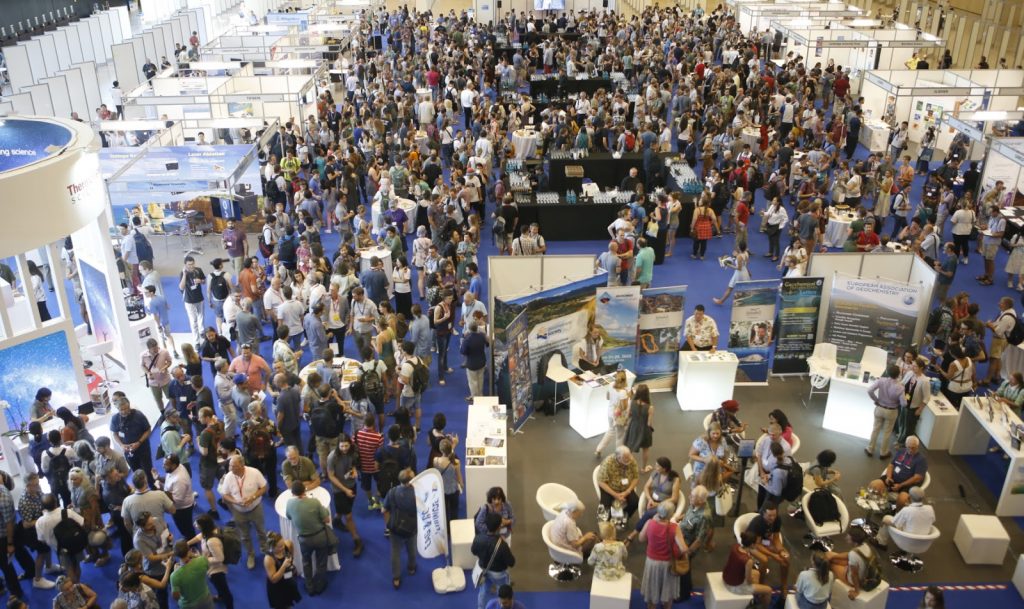Guest post by graduate student Jacob Morgan. Jacob was able to participate in the Goldschmidt Conference with support from the Julia R. Brown Fund for Climate Change Research and Education.
In August 2019, thanks to the generosity of the Julia R. Brown Education and Research Fund, I was able to travel to Barcelona, Spain, where I attended the European Association of Geochemisty’s Goldschmidt 2019 conference. The meeting is an annual gathering of several thousand geoscientists, mainly geochemists, and follows the traditional conference format of oral and poster presentations.
There were several factors that drew me to apply to attend Goldschmidt 2019. First, although it is still certainly a large conference in the field of Earth Sciences, Goldschmidt is much smaller in size compared to AGU’s Fall Meeting, which is the only other meeting I have attended as a PhD student. I enjoyed that the smaller, more manageable conference size counterintuitively encouraged me to branch out and sample a broader range of topics without feeling like I was missing something important or more relevant in a different session.
The second reason I was particularly excited to attend this meeting was its location. Having so far only attended conferences in the continental United States, I looked forward to interacting in person with more of my European colleagues, who attended the meeting in large numbers. I was successfully able to reconnect with peers I had met during my time in the UK for my undergraduate education, and to make new connections that I hope will persist. I aim to return to Europe after completing the PhD program so having a network of colleagues in Europe will be extremely beneficial to me after I graduate.
The final reason I chose to attend the Goldschmidt 2019 meeting was the opportunity to be present for the Wally Broeker memorial session in honour of the great geochemist, who recently passed away. Wally Broecker was an all-round geochemist and devoted a significant fraction of his career to studying topics that I am now interested in and working on. The session did not disappoint! It featured many interesting talks and posters from across the geosciences, from radiocarbon dating, to glacial-interglacial climate change, to carbon capture and sequestration. It was a delight to be present for the session and it was truly the highlight of the conference.
I am extremely grateful and indebted to the support of the Julia R. Brown Education and Research Fund, the trip would not have been possible without the funding I received. I would encourage any student considering applying to go through with the simple application. I hope many others are able to benefit for many years in the future.


